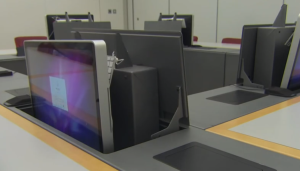
As the importance of higher education as both a seriously valuable export and an essential component of soft power is becoming ever-clearer, a number of countries which are not known for being major tertiary education players have set themselves ambitious goals for excelling in this section. Nations such as Russia (Project 5-100), China (Project 211), Qatar (Education City) and Saudi Arabia (KAUST) are lavishing billions of dollars on new and existing learning facilities in the hope of climbing the international education rankings and becoming desirable destinations for the students of the future.
However, can these efforts actually work? After some contemplation, we at Mediolana believe that heavily statist countries need to address the following challenges to ensure that their investments bear fruit:
1. Basic Freedoms. Foreign nationals who have academic appointments in countries with patchy human rights records need to be sure they are not going to get locked up or worse for innocuous actions relating to freedom of speech and similar rights. They should feel at least at ease as they do in their home countries. Amongst other things, this is essential to extracting the highest performance out of knowledge workers.
2. Accepting Diversity. Part of accepting diversity in any context is respecting the fact that there will be people who think and behave completely differently from you. While this does not compel you to agree with them – a distinction which some prominent contemporary thinkers struggle with – it should inspire university administrators and academics to structure their institutions to encourage the blossoming of new perspectives.
3. Money. In the event that either (or both) of the first two points is just too hard to stomach, most people do have their price. Telephone number salaries and all-expenses-paid scholarships can, do and will attract top talent to your shores. However, without structural reforms, what good these high-profile but ultimately neutered acquisitions will do is anyone’s guess.










